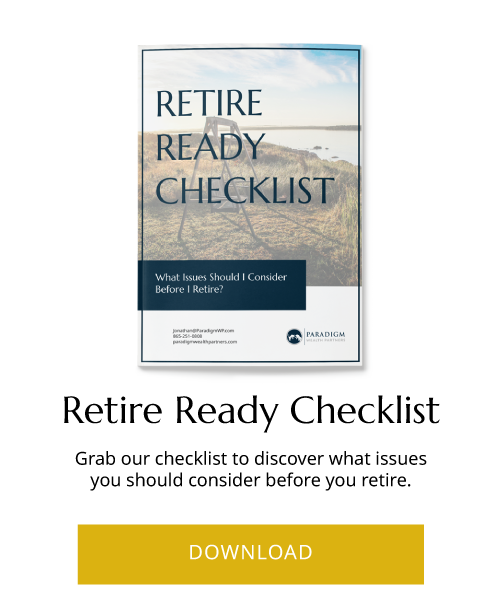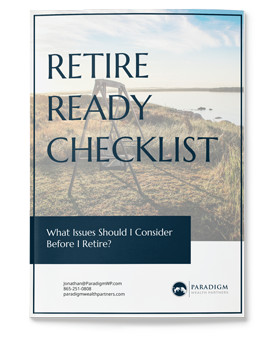How Should Millennials Prepare for a Generational Wealth Transfer?
Soon the Millennials will be able to afford all of the avocado toast they want. Baby Boomers are set to pass more than $68 trillion to their Millennial children, the biggest transfer of wealth in history. How can Millennials prepare for this massive windfall?
How Did This Transfer of Wealth Come to Be?
Baby Boomers are the generation born between 1944 and 1964, and Millennials are those born between 1981 and 1996. The Boomers accumulated a massive amount of wealth thanks to the strong post-war economy they were born into, which saw extraordinary economic growth, declining tax rates for high-income households, and a strong stock market.
The average net worth of a Baby Boomer is $1.2 million, and the generation controls 70% of the disposable income in the US.
The Impact on Millennials
Millennials aren’t going to go to sleep one night with $20 in the bank and wake up to millions. The Baby Boomers will continue to reign as the wealthiest generation until at least 2030, when Gen X takes over. But the Millennials will see the fastest growth rate of net wealth accumulation over the next few decades.
Possibly because Millennials entered the workforce in the middle of the recession caused by the 2008 Financial Crisis, are possibly living through another one thanks to rapid interest rate increases, have high levels of student loan debt, and are far behind where their parents were at the same age, they want to focus on financial wellness.
What Makes Millennials Different
They have shunned many of the traditional markers of adulthood, buying cars, getting married, having children, and buying homes. In some cases, they simply couldn’t afford those things, but many don’t embrace the typical American Dream that those things represent. They don’t want to take on such huge financial burdens when they’ve seen, twice now, how fragile finances, jobs, the market, the economy, and the world really are, and they prefer experiences to things.
And they see how little loyalty to an employer is rewarded, opting to frequently change jobs and even careers, or opt out of traditional career routes altogether as they no longer offer job security in favor of the gig and freelance economies, which provide more freedom and flexibility.
Millennials are also digital natives, those who were born into or came of age during the digital age. They have a high comfort level with technology and expect to be able to do most anything from an app, including banking and investing.
Millennials have a high level of social awareness. Many prefer to invest in companies whose values align with their own, particularly in the areas of environmentalism and social justice.
All of this means that Millennials will spend, save, work, and invest differently than their parents. More vacations, smaller homes, fewer cars, small businesses, investing apps, and alternative investments.
How to Prepare if You Have Boomer Parents
First of all, don’t count your chickens just yet. More than half of Millennials who expect to receive an inheritance are expecting at least $350,000, but more than half of their Boomer parents say that number will be less than $250,000.
As people expect to live longer and the cost of healthcare, including long-term care, continues to rise, Boomers want to make sure they outlive their money. They’ve also been spooked, as we all have, by high inflation, increasing interest rates, and a tumultuous market.
And only 37% of people have a plan to transfer their wealth. That means much of what they planned to leave can be eaten up by taxes and fees.
All of these factors mean it’s more important than ever to speak to your parents about their financial plans and encourage them to speak to a financial planning professional.
Life Expectancy
Speak to your parents about their wishes when it comes to things like medical intervention and what kind of living situation they want if they can’t live totally independently eventually. Ask if they have long-term care insurance and have given someone durable power of attorney for healthcare decisions.
Estate Planning
People often mistakenly think that an estate plan is only for the wealthy, but everyone needs an estate plan. An estate plan allows you to control the distribution of your assets and possessions.
An estate plan also spares your family from dealing with what can be a long and expensive probate process.
Tax Planning
Without proper tax planning, a big chunk of your estate is going to the government. Tax planning is an integral part of a solid estate plan. Estate tax rules are in play depending on the size of the estate.
For 2023, you can pass on up to $12.92 million in assets without owing federal estate taxes, and you don’t pay estate tax if the assets are transferred to your surviving spouse.
Charitable Planning
There are tax planning strategies, including Qualified Charitable Distributions and Donor Advised Funds, that can help not only put more money into the coffers of the charities you care about but lower your tax burden too.
Giving away or coming into large sums of money is a complex thing. If you have questions from either side of the equation, we’re here to help.



